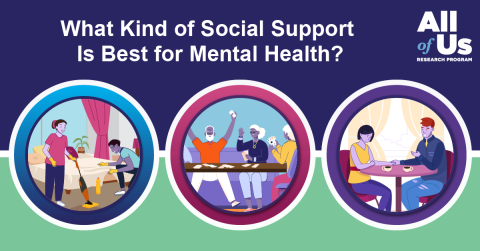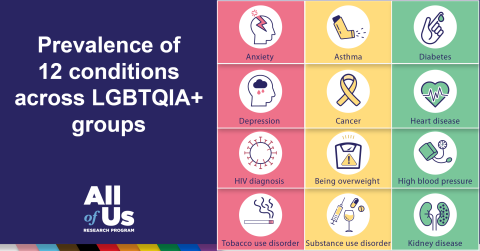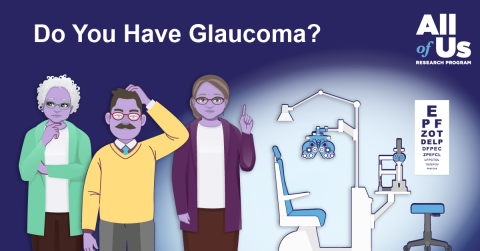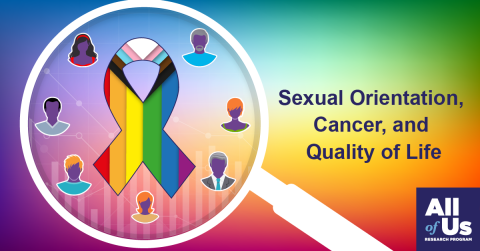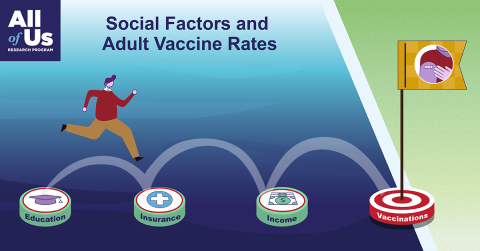All of Us is shaping how we understand health and disease. Research Highlights showcase the recent research powered by All of Us data and tools.
Featured Highlight
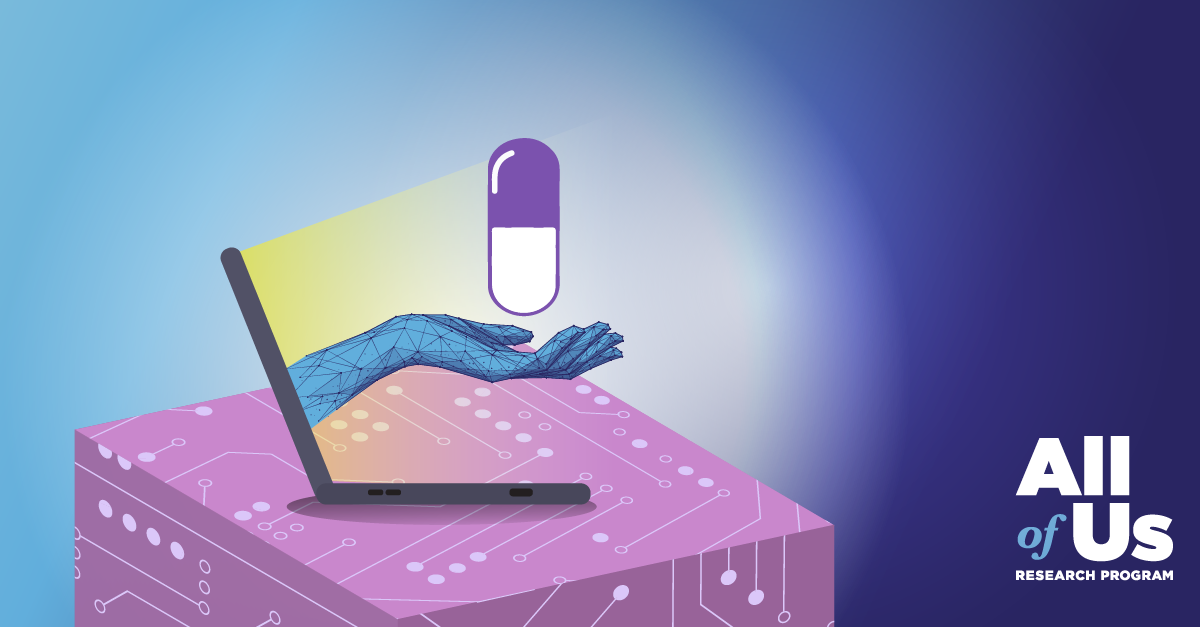
All of Us and Artificial Intelligence Help Speed Up the Search for Promising Medicines
Artificial intelligence and All of Us may help speed up the time it takes to find medicines to treat health conditions. Researchers used ChatGPT to quickly identify existing medicines that might help prevent Alzheimer’s disease. They then looked at All of Us and another large health dataset to confirm that three of these medicines are worth studying in people.
All of Us Data Shows the Power of Social Support to Prevent Depression
We know social support is good for mental health, especially during hard times. In a new study, researchers looked at specific types of social support during COVID-19. Thanks to All of Us, the researchers learned which types of social support protected against depression the most and which groups benefited the most.
Learning More About LGBTQIA+ Health Thanks to All of Us
Researchers studying All of Us data found that anxiety, depression, HIV diagnosis, and tobacco use disorder were more common in LGBTQIA+ participants than in non-LGBTQIA+ participants. Rates of other conditions varied among LGBTQIA+ groups. This study shows that All of Us data can help us learn more about LGBTQIA+ health and health inequities.
Using All of Us Data to Learn About Glaucoma Awareness
Researchers compared data from electronic health records (EHRs) and surveys to learn whether All of Us participants know they have glaucoma. The findings suggest a need for better efforts to educate people about their glaucoma diagnosis.
Study Finds Differences in Quality of Life for Lesbian, Gay, and Bisexual Cancer Survivors
Researchers looked at All of Us survey responses to study the experiences of cancer survivors. The researchers found that lesbian, gay, and bisexual (LGB) survivors had lower quality of life than heterosexual survivors did. Learning about these differences, called health disparities, may help health care providers tailor cancer care to the needs of LGB people.
All of Us Data Teaches Us About Who Gets Vaccinated
Researchers reviewed All of Us data to understand who gets routine vaccinations. Vaccines are the best way to prevent many diseases, but not everyone gets the vaccines recommended for them. This research can help public health experts improve vaccination rates.
